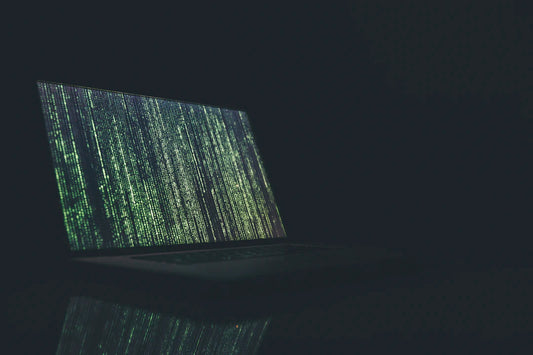Frequently Asked Questions
1. What are privacy phones?
2. How do privacy phones intersect with data protection laws?
3. What rights do users have regarding their personal data?
4. What are the potential legal risks of using privacy phones?
5. How can users advocate for privacy rights?
In today's digital landscape, the need for privacy is more pressing than ever. With smartphones being the primary tool for communication and internet access, the demand for privacy phones has surged. These devices promise enhanced security and data protection, enabling users to navigate the digital world with more confidence. However, the legal implications of using privacy phones extend beyond mere functionality. Let's explore the nuances of privacy, legality, and technology.
Understanding Privacy Phones
Privacy phones are smartphones designed with enhanced security features to protect users' data from unauthorized access, malware, and tracking. These devices often run on specialized operating systems, such as GrapheneOS, which is based on Android but offers various security improvements, making it a popular choice for those seeking privacy.
Many users are intrigued by the combination of privacy features and performance enhancements. For instance, privacy phones can often leverage the Pixel 7a camera performance for photography without compromising personal data through traditional tech services. Understanding what these devices offer is crucial to navigating their legal implications.
Key Legal Frameworks Affecting Privacy Phones
Using a privacy phone can potentially intersect with several legal frameworks. While the intention behind these devices is often benign, the legalities can be complex. Here are some fundamental legal aspects to consider:
Data Protection Laws
One of the primary legal considerations for users of privacy phones is how data protection laws apply to their usage. Regulations like the General Data Protection Regulation (GDPR) in Europe and the California Consumer Privacy Act (CCPA) in the U.S. lay down strict guidelines for data collection, processing, and storage. While privacy phones inherently offer more robust protections, users must remain aware of their obligations under these laws, especially if their devices continue to interact with mainstream applications or networks.
Law Enforcement and Surveillance
Another significant concern involves law enforcement. Privacy phones that utilize systems like GrapheneOS to enhance user privacy may present challenges for law enforcement agencies when investigating criminal activities. While users have a right to privacy, this can lead to complex legal situations where individuals may be entitled to refuse cooperation with investigations in some jurisdictions. Understanding your rights and the limits of what law enforcement can demand in terms of information is essential for privacy phone users.
Understanding User Rights
The right to privacy varies by country and state, influencing how privacy phone users can interact with law enforcement or governmental agencies. Here are a few critical user rights to be aware of:
Right to Access Personal Data
Under regulations like GDPR, users have the right to access their personal data being processed by companies, including any third-party services utilized on their privacy phones. If your device connects to an outside application, you have the right to understand how your data is being used. This is particularly important as users seek enhanced security while still using social media or messaging apps.
Right to Data Erasure
Users also have the right to request erasure of their personal data from a company's systems. This can be a vital tool for users of privacy phones, especially if they find that certain applications compromise their privacy. However, realize that data erasure does not absolve users from their contractual obligations under laws like CCPA pertaining to their dealings with particular companies.
Potential Legal Risks of Using Privacy Phones
While privacy phones offer a suite of privacy benefits, they are not without potential legal risks:
Device Modification and Legality
Many privacy phones come pre-loaded with offers for customization and modification, particularly those running on operating systems like GrapheneOS. While users enjoy the ability to change their devices significantly, certain modifications may infringe on local regulations, especially concerning telecommunications laws. Users should remain aware of their specific region's legal stance on device modifications before proceeding.
Engaging with Black Market Services
Privacy phones can sometimes be misused to access illegal content or services. Users may face significant legal repercussions if their devices are used to facilitate criminal activities. Moreover, while users may advocate for privacy, they must acknowledge the juxtaposition of their rights against the law when engaging with potentially illicit content or activities.
Insurance and Liability Considerations
Another point worth discussing is the insurance and liability related to privacy phones. Users should understand the extent of their coverage concerning potential breaches of privacy or data mishandling that might occur while using these phones.
Privacy Breach Liability
In the context of insurance, many traditional policies do not cover breaches stemming from privacy-related incidents. Users investing in privacy phones should explore insurance specifically tailored to cover digital security risks. This could mean higher premiums but ultimately provide better protection against potential legal implications arising from data breaches.
Product Liability Concerns
When using privacy phones, manufacturers may hold some liability should their devices malfunction or fail to protect user data adequately. Engaging in legal action can be convoluted, particularly if the user has modified the device in any capacity. Understanding who is liable in various situations helps mitigate risk.
Advocating for Privacy Rights
More than just understanding the legal implications, privacy phone users play an essential role in advocating for privacy rights. By being informed and proactive, users can influence future legislation that affects privacy and technology.
Participating in Advocacy Groups
Individuals concerned about privacy can engage with advocacy groups fighting for digital rights. Joining organizations that focus on privacy legislation not only amplifies individual voices but also helps push for stronger protections for all consumers. Awareness regarding privacy laws leads to more informed consumers, who can create pressure for change.
Promoting Awareness on Social Media
Utilizing social media platforms to promote awareness of privacy issues and rights can spark essential conversations. Sharing personal experiences with privacy phones can set the stage for discussions about data rights and ultimately lead to changes regarding privacy technology legislation.
Future Trends in Privacy Technology
The future of privacy phones is ever-changing as technology and laws continue to evolve. As privacy concerns become more mainstream, businesses will feel pressure to adapt quickly.
Emerging Technologies and Regulations
With the rise of artificial intelligence and machine learning, the future will likely usher in new privacy measures alongside stricter regulations. Consumers should remain aware of how their rights are protected as these technologies evolve. Vigilance will be crucial for privacy phone users who want to ensure they are compliant while enjoying enhanced privacy features.
Impact of Global Politics on Privacy
Global politics also play a critical role in shaping privacy technology's future. As different regions adopt varied privacy laws, users must stay informed about how international relations affect their rights and responsibilities. Changes in trade policies can impact the availability and legality of specific privacy technologies across borders.
Empowering Yourself with Knowledge
Being equipped with knowledge about the legal implications of using privacy phones can be empowering. While integrating privacy technology into daily life provides numerous benefits, it's also essential to remain vigilant about potential pitfalls.
From understanding the intricacies of privacy laws to following new developments in technology and legislation, users can ensure they are informed and prepared for whatever digital challenges may arise. By taking a proactive approach, you can enjoy all the benefits of privacy phones while minimizing legal risks. So, are you ready to take charge of your privacy?





